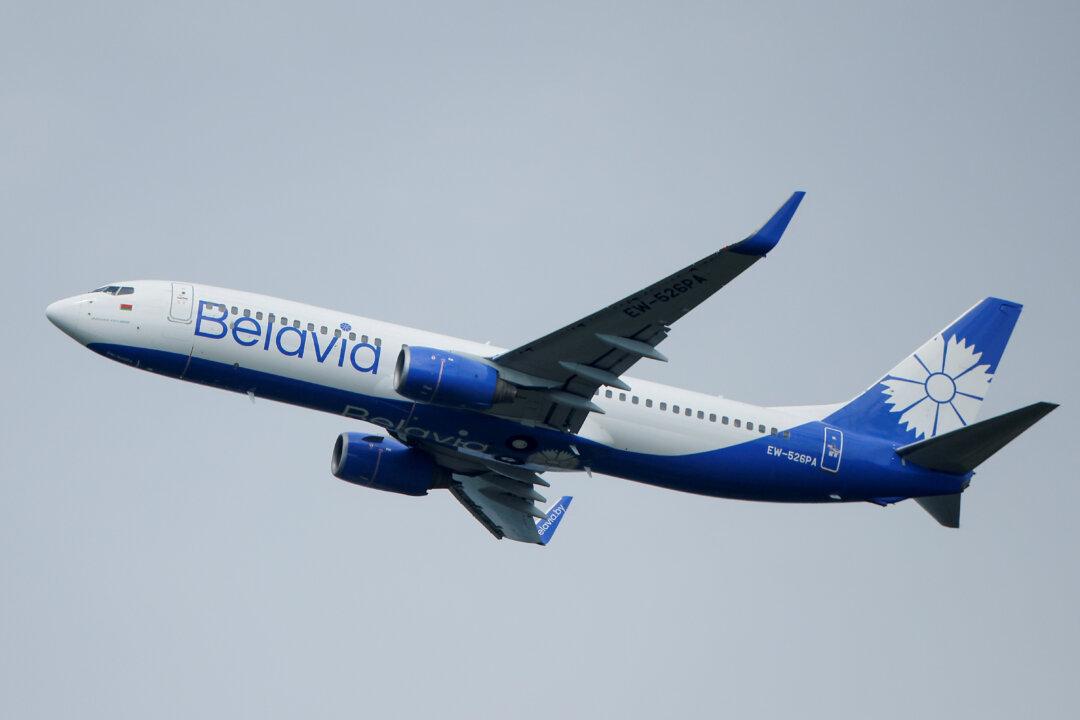BRUSSELS/WARSAW—Belarus carriers will be banned from flying over European Union territory or having access to its airports from Friday, the bloc said, as the country’s exiled opposition leader called for more joint Western sanctions.
The EU decision is part of planned punitive measures against Belarus in response to Minsk scrambling a warplane to force the landing on May 23 of a Ryanair flight carrying an opposition journalist, who was then arrested.





